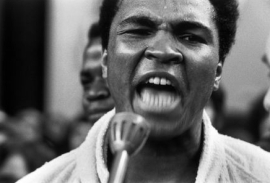 The last chapter in The Saltwater Twin (don’t hold your breath, friends, I’ve months to go yet) is going to be about letting go. It’s something I wish I were better at. It’s a little bit of a pickle, actually, because as a writer, it’s sort of my job to notice and hold and catalogue details, but as a human being who prefers to feel mostly happy and relatively untortured, I find letting go to be a useful skill. It’s something I keep having to learn, maybe the most important thing. As such, it seems like a fitting topic for the last chapter of a book that is something of a piecemeal memoir of my whole life so far.
The last chapter in The Saltwater Twin (don’t hold your breath, friends, I’ve months to go yet) is going to be about letting go. It’s something I wish I were better at. It’s a little bit of a pickle, actually, because as a writer, it’s sort of my job to notice and hold and catalogue details, but as a human being who prefers to feel mostly happy and relatively untortured, I find letting go to be a useful skill. It’s something I keep having to learn, maybe the most important thing. As such, it seems like a fitting topic for the last chapter of a book that is something of a piecemeal memoir of my whole life so far.
It’s been a challenging month. (More on that in the next post.) This old song has been playing in my head. I couldn’t remember all the words, but I knew it was Irish; I thought The Clancy Brothers sang it. Yesterday I went online to find a version to download. Turns out “The Parting Glass” dates back to at least the 18th century, and The Clancy Brothers did often play it to end their concerts. There are different versions, of course, because it is an old, old song with, as it turns out, both Irish and Scottish roots, but here are a couple of the verses that are often sung:
Of all the money e’er I had,
I spent it in good company.
And all the harm I’ve ever done,
Alas! it was to none but me.
And all I’ve done for want of wit
To memory now I can’t recall
So fill to me the parting glass
Good night and joy be with you all.
Oh, all the comrades e’er I had,
They’re sorry for my going away,
And all the sweethearts e’er I had,
They’d wish me one more day to stay,
But since it falls unto my lot,
That I should rise and you should not,
I gently rise and softly call,
Good night and joy be with you all.
Okay, so it makes sense why this song has been playing on the record player in my brain recently, since it’s about letting go – well, saying goodbye, anyway – for a short time or a long time or forever. The melody sounds sweet and old and wistful, like the song is trying to teach you how to let go gently before the last note fades. The Pogues did a rendition and The Wailin’ Jennys, The High Kings and, of course, The Clancy Brothers. I was listening to the latter when a thumbnail image in the margin caught my attention: “Bob Dylan: Thoughts on Liam Clancy.” I clicked. In the clip, Dylan tells a story about drinking pint after pint of Guinness with Clancy someplace in Greenwich Village when Clancy said to him, “Remember Bob, no fear, no envy, no meanness.”
Yes, I am now getting my life lessons from YouTube. Because that’s one of the best things I’ve ever heard. The best advice for writing and for life.
No fear. Yep. Fear suffocates. We are our best when we throw ourselves into our work wholeheartedly without worrying about the outcome. I, for example, don’t know what will happen when I finish this book. What if no one publishes it? No one reads it? What if I’m fooling myself that I have something worthwhile to say? There are a million what ifs. But I think I’m best, I’m smartest and happiest when I can let go of the fear that things won’t turn out the way I hope.
No envy. Yep. I’ve been reading a lot of essay and memoir while working on this book. The Saltwater Twin is a collection of personal essays, a new form for me. I want to get a sense of the ways it has been done, how best to assemble a collection of work, how to create a dynamic narrative arc from stories that felt random when they were happening, how to strike a satisfying balance between story and non-narrative (but hopefully still diverting) musings. Sometimes I envy the writers I’m reading. They’ve already published books. They already have fancy websites and checks from publishers and book signings with plastic cups of wine. That envy is a fruitless pursuit, and it leads, frequently, back to fear. Who am I to think I can do this thing?
No meanness. Ah. I like that meanness has multiple meanings. Meanness, as in unkindness, does not make good art. The voices that hiss “stupid” or “worthless” or “give up now” do not make me want to sit down and type. But neither does meanness as in stinginess. I can’t hold anything back. I want to give my whole self to the work – everything I have – and freely. This goes for life, too, of course. You are a genius, Liam Clancy!
So, my lads and lasses, my comrades and sweethearts – letting go of fear, of envy, of meanness. Will you fill a glass and toast with me to that?











